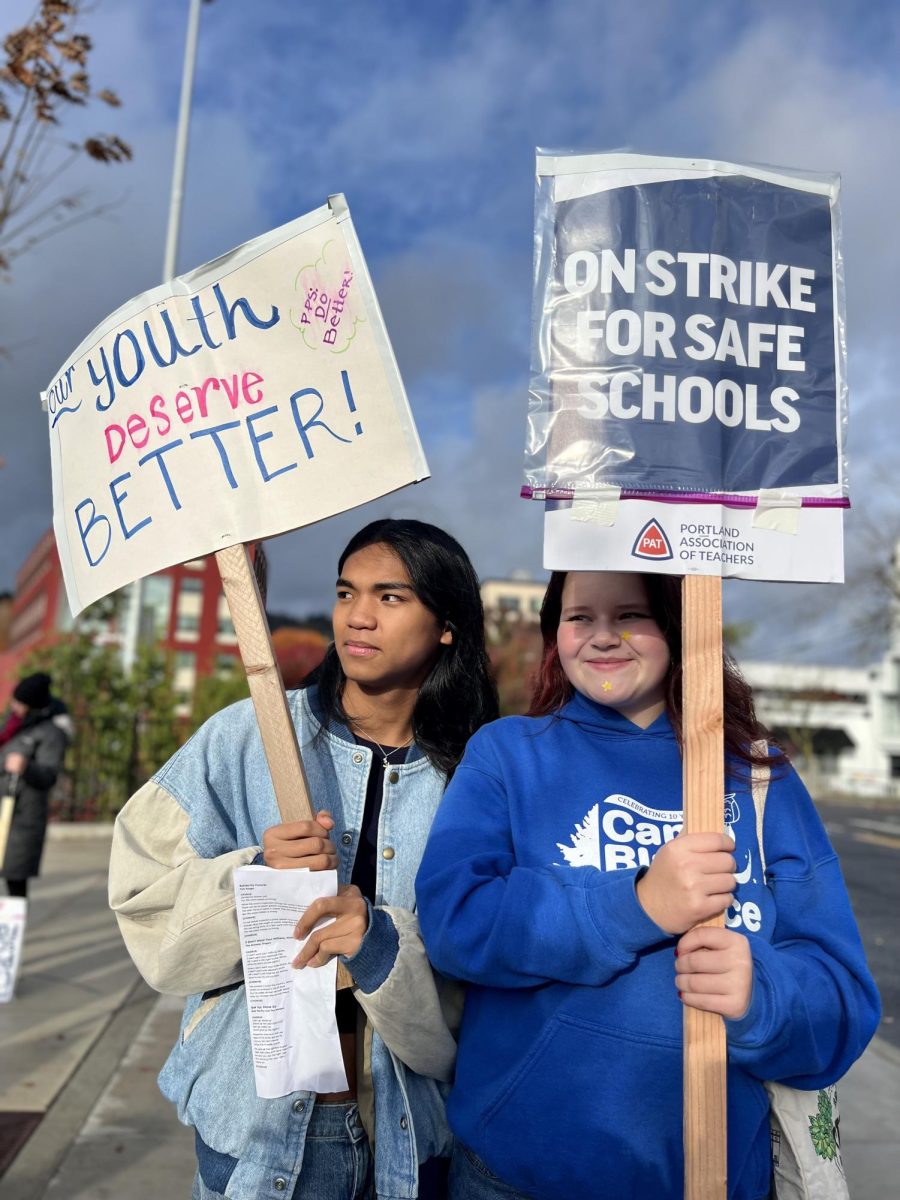No-School November lived up to its name when the Portland Association of Teachers (PAT) went on strike on Nov. 1, shutting down 86 schools across the district. After a month of negotiations between the PAT and Portland Public Schools, the district’s 45,171 students returned to school on Nov. 27. The PAT fought for smaller class sizes, salaries, safe schools, special education services and more.
For some students, the strike acted as an extended mental health break. Helen Colletti, a junior and IB diploma candidate, spent her time with friends.
“It was nice to have a break,” said Colletti. “I think it’s good to have mental health days, so it was nice that we were able to have days to ourselves that didn’t count against our attendance.”
While the month off gave some students an appreciated break from school, it also caused stress for those participating in extracurricular activities.
Freshman Walker Cooke is in the Lincoln Drama department’s fall musical, “25th Annual Putnam County Spelling Bee,” which he said was negatively impacted by the strike due to the inability to access Lincoln’s auditorium during the strike.
“We were in the middle of our show. We knew [there would not be] a lot of time when we got back to [rehearse], so it was really hard to find ways to still rehearse our show and keep it on the right track [without] being in the theater,” said Cooke.
The cast and crew ended up rehearsing at several places across the Portland area, including the Pioneer Methodist Church in St. John’s, stage manager and senior Monica Gibson’s house, an office building in NE Portland and drama student and junior Fraser Barnes’ house.
In addition to extracurriculars, the strike put many classes behind schedule, leading to a lack of time for students to get work done. Senior Zen Duran said some students fell behind on work, especially in International Baccalaureate (IB) classes.
“I feel like a lot of teachers completely understood what we were going through, but some completely didn’t. [I] still had a 12-page [Internal Assessment] due during Thanksgiving break. [Students] have no time to make up [work], even with the extra days because the IB tests can’t move,” Duran said.
Duran also said the strike echoed virtual learning during the COVID-19 pandemic.
“The strike allowed me to [go into] COVID mode, where you don’t have to turn a single thing in until the end of the semester because [teachers were] lenient. I ended up not doing anything. The only thing I did was [finish] my college apps because those deadlines weren’t moving,” said Duran.
Colletti said the uncertainty of when and if the strike would end affected her ability to plan for the return to school.
“I thought I was going to do a lot during the strike and thought I would be less stressed coming back to school,” said Coletti, “but coming back to school I was feeling equally as overwhelmed as I was beforehand.”


Ronald Waugh • Dec 18, 2023 at 4:34 pm
Timely, well written article!